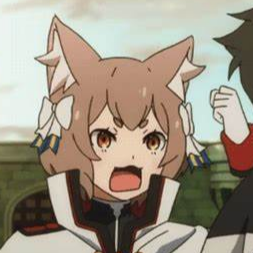damn, who will explain to rats that this is utopian and not realistic?
Rats proving that human social evolution has yet to even make any signficant gains in 12k years since we started this mess :rat-salute: maybe the rats deserve to inherit the earth then then the stars above.
no humans are good like this by nature aswell which is why capitalism and it's perverse incentives are so bad
no humans are good like this by nature aswell
IDK, if that were true, then how did we get here?
some guy decided to pay someone else to harvest his crops and things got out of hand
Getting tied to the land is a pretty exploitable material condition if you're willing to murder enough people, and it turns out that's a bit of a false vacuum situation.
IMO, everything to do with the human experience started to go downhill when we transitioned to an agricultural society.
I dunno the being able to have enough food to store away and have specialised labour is pretty neat
Peasants were actually more food insecure than hunter gatherers. Hunter gatherers had a lower population and a diverse variety of food sources. Peasants on the other hand had a relatively poor diet, were vulnerable to disease, and would die en masse if a single important crop failed like 2 or 3 years in a row.
yeah but agricultural society led to less food insecurity down the line
that is true so far because we have largely been successful developing new technologies to expand agricultural production. thus its current state is more vulnerable for this reason. We have artificially increased the carrying capacity of the land. This increases its vulnerability if there is a "technological" disruption. Such as no access to petrochemical-derived fertilizer (during current RU/UA conflict), new GMO/GE seeds (because they are designed to require repurchasing), groundwater depletion due to overpumping (Ogallala comes to mind), plant disease and insects adapting to monocrop and GE/GMO agriculture (making pesticides ineffective).
That's a very recent development and we're already having serious problems with soil deletion and climate. Those are solvable problems but we haven't actually solved them yet and a lot of people are going to die from food insecurity in the coming decades.
Also hunter gatherers had less gender inequality and less wealth inequality. https://en.wikipedia.org/wiki/Primitive_communism https://immortal.org/8977/sexual-equality-study/
Competition for resources causes humans to turn suck. When competition is not a factor, humans are nice.
We have real world examples of humans that live under those conditions. Watch the things in this awesome thread and make sure to read the images at the end of it.
Our behaviour is determined by the material conditions.
Idk... I don't know that I believe that we can avoid competition over things anymore tbh. Even with socialism, the interests of the proletariat is in dissolving the distinction between the worker & owner of productive property; and that's about as far as it goes. But that doesn't mean people get valued the same; not everybody gets to matter. And so that's wherein you'll find competition.
Having violent islanders with a violent elite aka terf-island be the first to harness modern military power of cannon boats etc. has something to do with it :ukkk:
Though we also have good news, people can achieve cooperation over centuries as exemplified here: https://www.frontiersin.org/articles/10.3389/fpos.2022.805047/full
The Foundation of Monte Albán, Intensification, and Growth: Coactive Processes and Joint Production
One perspective, reliant on uniform models of premodern states as despotic, viewed the process from a basically top-down lens; leaders coerced subalterns to move near the capital to provide sustenance for the new center. Yet more recent research has found that governance at Monte Albán was generally more collective than autocratic, and productive activities were centered in domestic units and not managed from above.
Based on these new empirical foundations, we reassess earlier settlement and land use studies for the Valley of Oaxaca and view this critical transition as initiated through coactive processes in which new institutions were formed and new relations forged. Shifts in defense, ritual, domestic organization, craft production, and exchange all coincided with this episode of growth fostered by joint production, which intensified agrarian yields through increased domestic labor investments.
:rat-salute:
Reject monke, ascend to rat.
- +15 cooking
-
- 5 adorableness
- +1917 comrade
I work with lab rats and they’re so sweet I love them so much
This is now my favorite video ever.
I nearly cried of laughter at the "guns" part
Poor rats got the curse of empathy, how will they ever achieve their individual destinies now?
consume American media until they become atomized narcissists, then take on six figures of student loan and return to office?
I feel like this study didn’t have a large enough sample size











